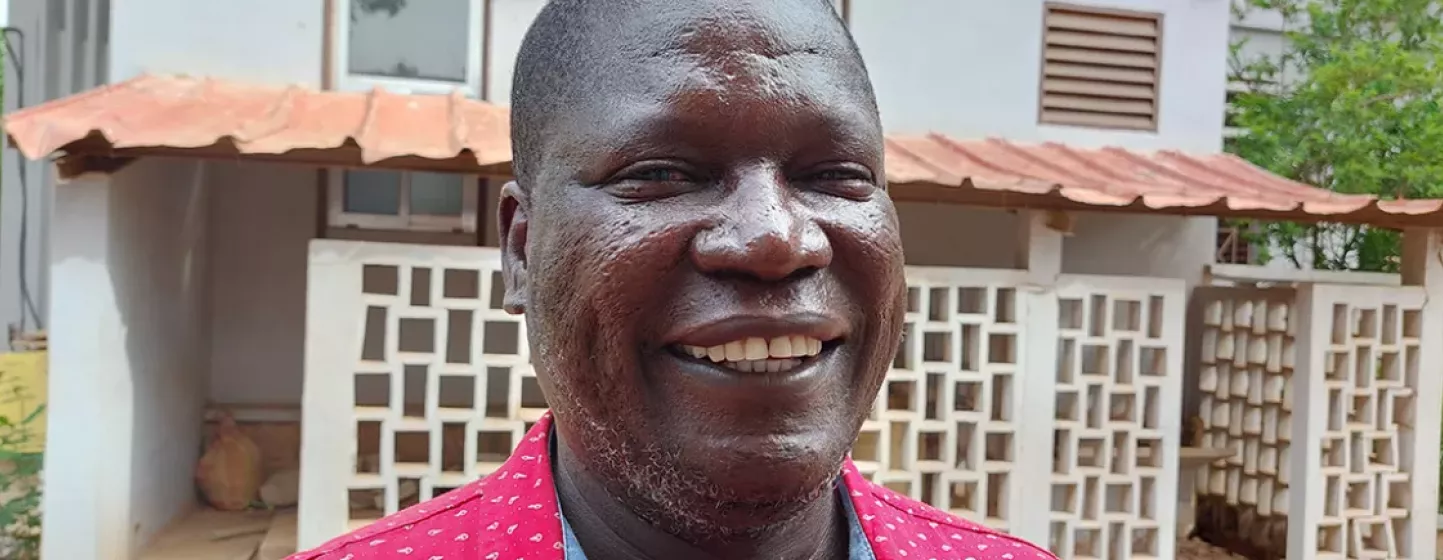“With the insecurity, female journalists at my radio station have seen their role evolve”
Léonard Kinda is Director of Radio Voix des lacs in Kongoussi in Burkina Faso. He is looking forward to participating in CFI’s new project, “MediaSahel for Women”. For him, “men and women working in the media need to be more aware of gender issues and of their responsibility to promote change”.
CFI has launched the “MediaSahel for Women” project aimed at women and gender issues more broadly. What do you think makes this project relevant?
Léonard Kinda: The foundations of gender and sexuality lie in culture. In the moagha culture, to which I belong, men have been in charge since time immemorial. It’s social construct built in a given context that needs to be corrected. For example, education within families is still an issue. We never ask a boy to fetch water. This traditionalist education does not address issues surrounding gender. This mindset then passes into the public sphere. Men do what they want and women leave them to it.
What role can radio stations play here?
L.K.: This is a mission that community radio stations must take on. Our role is to educate through innovation. But shortcomings in terms of human resources are preventing us from taking on this role. We have the agents, but we don’t have the skills.
We could devise role-reversal sketches with boys fetching water and girls studying. The religious and traditional authorities could also carry these messages via media channels. They could discuss better ways to interpret the texts. For example, they could spread a message such as “have children, but be responsible!”.
Has the security situation changed the game for female journalists?
L.K.: Yes! When there is a woman in the editorial department, she is the one who gets sent out into the field. The majority of peripheral groups don’t go near women. This option of sending girls/women is not always an imposed strategy but it is in our editorial conferences that the debate takes place, and decisions are made. If the event to be covered is in a risk area, women usually offer to go there. There is also a need to train them on security issues, particularly with regard to mines.
Paradoxically, is this not a kind of opportunity for women to produce typically “feminine” stories?
L.K.: Yes, in effect. The female journalists at Radio Voix des Lacs now cover subjects they would never have reported on before. For example, coverage of an accountability day. In general, local authority activities were not covered by women. As a result, their male colleagues are rather grateful. In the field, there is even a sort of delight. But despite this change, they still don’t express their opinions as much in editorial meetings. We need to reinforce the general culture. We need a turning point. Because, more often than not, there is not much critical review. Personal development sessions would allow them to express themselves more effectively.
Lastly, what do you hope to gain from MediaSahel for Women?
L.K.: My editorial department is fairly balanced in terms of numbers of male and female staff. But that does not guarantee good coverage of gender issues. This project meets our collective needs, but I also hope to be able to benefit from it. We are the oldest of the three radio stations in Kongoussi. Our agents are seen as examples. So, we need to work and develop ourselves to hold onto that status.
